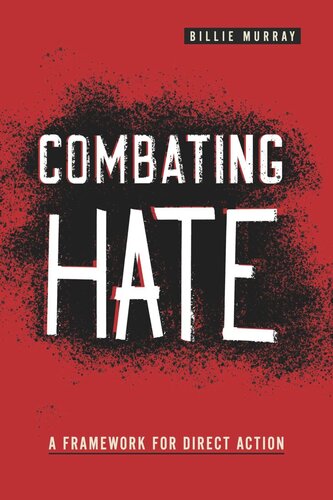

Most ebook files are in PDF format, so you can easily read them using various software such as Foxit Reader or directly on the Google Chrome browser.
Some ebook files are released by publishers in other formats such as .awz, .mobi, .epub, .fb2, etc. You may need to install specific software to read these formats on mobile/PC, such as Calibre.
Please read the tutorial at this link: https://ebookbell.com/faq
We offer FREE conversion to the popular formats you request; however, this may take some time. Therefore, right after payment, please email us, and we will try to provide the service as quickly as possible.
For some exceptional file formats or broken links (if any), please refrain from opening any disputes. Instead, email us first, and we will try to assist within a maximum of 6 hours.
EbookBell Team

4.7
96 reviewsThe United States has a hate problem. In recent years, hate speech has led not only to deep division in our politics but also to violence, murder, and even insurrection. And yet established constitutional jurisprudence holds that all speech is protected as “content neutral” and that the proper democratic response to hateful expression is not regulation but “more speech.” So how can ordinary citizens stand up to hate groups when the state will not?
In Combating Hate, Billie Murray proposes an answer to this question. As a participant in anti-racist and anti-fascist protests, including demonstrations against the Ku Klux Klan, neo-Nazis, and the Westboro Baptist Church, Murray witnessed firsthand the limitations of the “more speech” approach as well as the combative tactics of anti-fascist activists. She argues that this latter group, commonly known as antifa, embodies a radically different strategy for combating hate, one that explodes the myth of content neutrality and reveals hate speech to be a tactic of fascist organizing with very real, highly anti-democratic consequences. Drawing on communication theory and this on-the-ground experience, Murray presents a new strategy, which she calls “allied tactics,” rooted in the commitment to affirm, support, and even protect those who are the victims of hate speech.
Engaging and sophisticated, Combating Hate contends that there are concrete ways to fight hate speech from the front lines. Murray’s urgent argument that we reconsider how to confront and fight this blight on American life is essential reading for the current era.